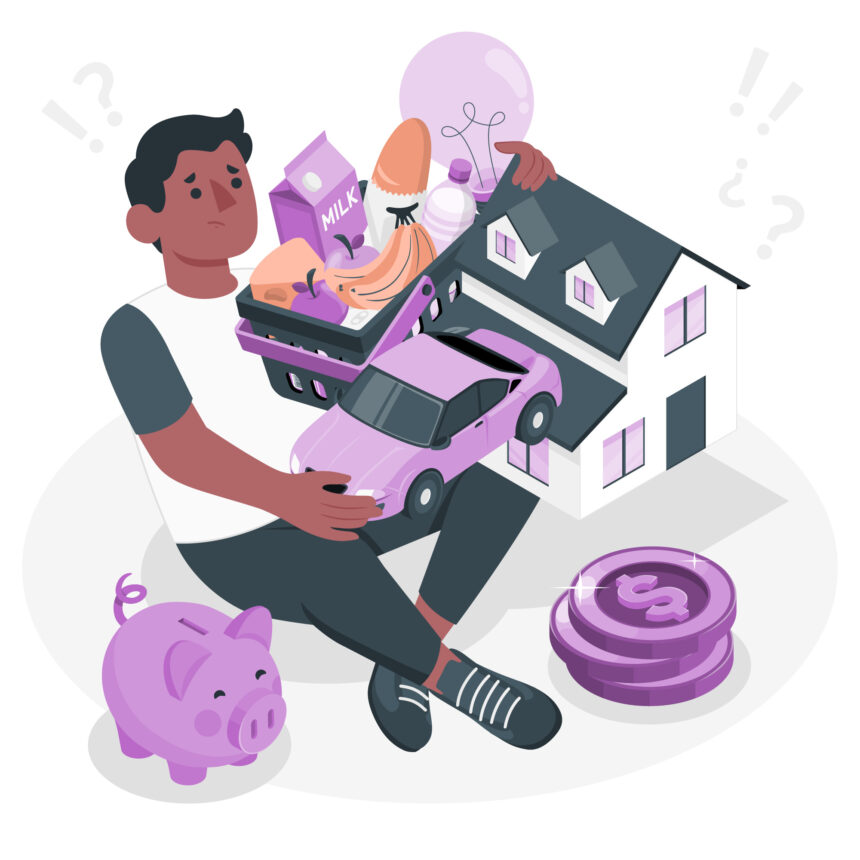Introduction: Why Bundling Home and Auto Insurance Makes Sense
Picture this: You wake up one morning only to find that a pipe has burst in your living room, or you step out of the grocery store to see that someone has sideswiped your car. These surprising mishaps can end up costing you a pretty penny. This is exactly where home and auto insurance come into play. They aren’t just legal requirements or something you have to think about for financial reasons; they’re really about giving you peace of mind for the long haul.
Did you know that over 85% of homeowners in the U.S. have some form of home insurance? Plus, car insurance is a must in nearly every state. Yet plenty of folks out there are missing out on the extra savings and convenience that come from bundling these two types of insurance. We’re here to walk you through what home and auto insurance are really all about, how bundling can work in your favor, tips for picking the right insurance provider, and tricks for maximizing your coverage without breaking the bank.
We’ll even toss in some handy advice from experts, with suggestions that make the information easy to understand and useful in real life.
Step 1: Grasp the Basics of Home and Auto Insurance

Image Source: Freepik
When you think of home insurance, it’s all about protecting your home from things like damage or theft. Then there’s auto insurance, which protects your wheels in case of accidents or unforeseen issues. When you get both of these, you’ve got a solid safety net for your life and belongings.
What Home Insurance Generally Covers:
– Protection for your home’s structure
– Coverage for personal items
– Liability protection
– Costs if you need to live somewhere else during repairs
What Auto Insurance Generally Covers:
– Liability for bodily harm or property damage
– Collision coverage
– Comprehensive coverage for incidents beyond your control
– Protection against uninsured or underinsured drivers
Expert Insight:
“Insurance isn’t about being scared—it’s about feeling free. Knowing you’re covered lets you live your life with confidence.” — Jamie Sloan, Licensed Agent, TrustInsure
Step 2: Take a Look at Your Insurance Needs
Not every home or car needs the same amount of coverage. You really need to figure out your own circumstances—like where you live, what your property is worth, and how you drive.
For Your Home:
– Do you live in an area that floods or is prone to earthquakes?
– Has your roof seen better days or is it newly renovated?
– What’s the value of your house?
For Your Car:
– Are you making payments or leasing it?
– How frequently do you take it out for a spin?
– What’s its current value?
Expert Insight:
“A standard policy just won’t cut it for everyone. Make sure your coverage fits your life and belongings.” — Michael Ortega, Risk Management Consultant, SafeNest Insurance Group
Step 3: Embrace the Benefits of Bundling
Bundling is simply when you buy home and auto insurance from the same provider, which can lead to lower costs and simplified processes.
Big Perks of Bundling:
– Save as much as 25% on your insurance costs
– Streamlined bills and paperwork
– One single point of contact for everything
– Extra perks and lower deductibles
Expert Insight:
“Bundling isn’t just about saving money—it also saves you time. It’s about making your financial life easier.” — Tina James, Customer Success Manager, AllState Insurance
Step 4: Compare Different Insurance Providers
Not every provider rolls out the same deals or perks. It’s worthwhile to shop around to get the best bang for your buck.
Top Players in Home and Auto Insurance:
– State Farm – Good deals on bundling
– Progressive – Known for competitive auto rates and tech-helpful tools
– Allstate – Offers loyalty perks on bundles
– Liberty Mutual – Flexible coverage options
– GEICO – Great for those on a budget
What to Look At:
– Customer feedback
– Insurance ratings
– How quickly they respond to claims
– Available discounts
Expert Insight:
“The cheapest quote isn’t always the best deal. Consider the quality of service and flexibility of the policy too.” — Lisa Roman, Senior Insurance Advisor, PolicyGenie
Step 5: Get Quotes and Prepare to Prequalify
Once you’ve narrowed down your providers, it’s time to ask for quotes tailored to you. A lot of companies offer free online tools that won’t affect your credit score.
Info to Gather:
– Details about your car like make and model
– Your home’s location and specifics
– Any security measures in place
– Your driving history and any past claims
Step 6: Tailor Your Policies
You’ve got to think bigger than a basic insurance plan—choose additional options that suit your needs.
Options for Customization:
For Home: Flood insurance, earthquake coverage, coverage for home office equipment
For Auto: Roadside assistance, rental reimbursement, gap coverage
Expert Insight:
“Look beyond just the basics. Extra coverage can save you from unexpected pitfalls down the line.” — Doug Holloway, Certified Counselor, Protect360
Step 7: Get the Lowdown on Deductibles and Premiums
Your deductible is what you pay out of pocket before your insurance takes over. Usually, a higher deductible means lower monthly premiums, but you’ll bear more of the cost during a claim.
How to Choose:
– Can you handle a higher deductible if something goes wrong?
– Are you in a position to potentially save some cash with a higher deductible?
Step 8: Look for Discounts and Savings
You might find you’re eligible for discounts because of your habits or the safety features of your home or car.
Common Insurance Discounts:
– Bundling car and home insurance
– Safe driver discounts
– Discounts for having security systems
– Loyalty rewards or going paperless
Expert Insight:
“Many people don’t realize the savings opportunities that are available. Don’t hesitate to ask your agent about every potential discount.” — Kendra Malcolm, Insurance Analyst, QuoteBetter
Step 9: Read Everything Thoroughly and Ask Questions
Before you commit, check your documents closely. Look for things that aren’t covered and any confusing language.
Things to Clarify:
– What’s not included in your coverage?
– Are there limits on how much is covered for valuables?
– How is depreciation taken into account during claims?
Step 10: Get Your Billing Set Up and Keep an Eye on Coverage
After picking your policy, set up automatic payments to ensure you never miss a due date, and schedule a yearly review of your coverage.
Ongoing Tips:
– Check your policy every 6 to 12 months
– Update your coverage for any life changes, like getting a new car
– Maintain both a digital and paper copy of your policy
Bonus: What to Do After Filing a Claim
Accidents and damages can happen, and knowing how to navigate a claim can make everything so much smoother.
Claim Overview Steps:
– Document any damage you see with photos or videos
– Contact your insurance provider right away
– File your claim either online or over the phone
– Arrange to meet an adjuster
– Review any settlement offers
– Make repairs and finalize the claim
Expert Insight:
“Keep things organized with lots of notes and photos. The better your documentation, the stronger your case will be.” — Rita Valdez, Claims Specialist, RapidClaims Pro
More on Afripati


